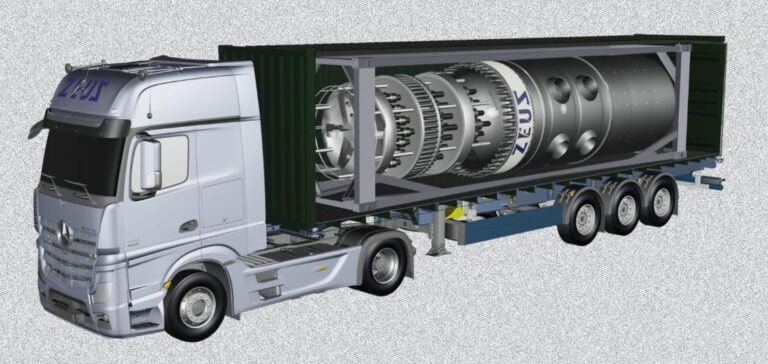NANO Nuclear Energy Inc. (NASDAQ : NNE), leader dans les technologies nucléaires portables et propres, poursuit son ambition de révolutionner l’accès à l’énergie et à l’alimentation dans les zones isolées. En partenariat avec Vert2Grow Energy Solutions, l’entreprise combine microcentrales nucléaires et agriculture verticale. Parallèlement, un accord avec le Département de l’Énergie des États-Unis (DOE) permettra de tester ses microcentrales expérimentales ZEUS et ODIN au laboratoire national d’Idaho (INL).
Un partenariat pour l’autosuffisance énergétique et alimentaire
Le partenariat avec Vert2Grow vise à résoudre des défis critiques dans les communautés isolées, notamment la dépendance aux générateurs diesel et l’insécurité alimentaire. En intégrant les microcentrales portables de NANO Nuclear et les systèmes agricoles verticaux de Food Security Structures Canada (FSSC), ce projet ambitionne de fournir une solution globale, durable et efficace.
Les premières étapes comprennent :
– Des études de faisabilité : analyse technique et économique de l’intégration des deux technologies.
– Un projet pilote d’ici 2027 : un réacteur ZEUS ou ODIN associé à une ferme verticale pour démonstration.
– Un engagement communautaire : formation locale pour assurer la gestion autonome des infrastructures.
Ces solutions pourraient transformer les zones isolées en hubs autonomes d’énergie et de production alimentaire.
Un soutien stratégique pour les microcentrales
Parallèlement, NANO Nuclear a signé un protocole d’accord avec le DOE pour tester ses réacteurs ZEUS et ODIN au laboratoire national d’Idaho. Ce site est reconnu comme une plateforme majeure pour le développement de technologies nucléaires avancées.
Le protocole inclut :
– Des études de site : évaluation des infrastructures de l’INL pour accueillir les prototypes.
– Un soutien réglementaire : accompagnement des démarches auprès de la Commission de régulation nucléaire (NRC).
– Un cadre de sécurité : plans pour la gestion des matières dangereuses et des réponses d’urgence.
Ces efforts s’inscrivent dans une stratégie nationale visant à renforcer la sécurité énergétique et à répondre aux objectifs climatiques des États-Unis.
Jay Yu, fondateur et président de NANO Nuclear, a déclaré : « Ce partenariat avec le DOE confirme notre engagement à développer des technologies nucléaires avancées, sûres et respectueuses de l’environnement. »
Un impact mondial et durable
Les deux initiatives de NANO Nuclear s’alignent sur une vision à long terme : fournir une énergie propre et des solutions agricoles partout où elles sont nécessaires. Avec Vert2Grow, l’entreprise cible des régions comme l’Afrique subsaharienne, l’Asie du Sud-Est et l’Amérique du Sud, où les besoins énergétiques et alimentaires sont les plus pressants.
Le projet avec le DOE, lui, met en lumière les opportunités industrielles et technologiques des microcentrales, depuis les sites miniers jusqu’aux zones sinistrées. James Walker, PDG de NANO Nuclear, a déclaré : « Ces collaborations montrent notre capacité à transformer l’accès à l’énergie et à l’alimentation grâce à des innovations adaptées aux besoins des communautés. »





















